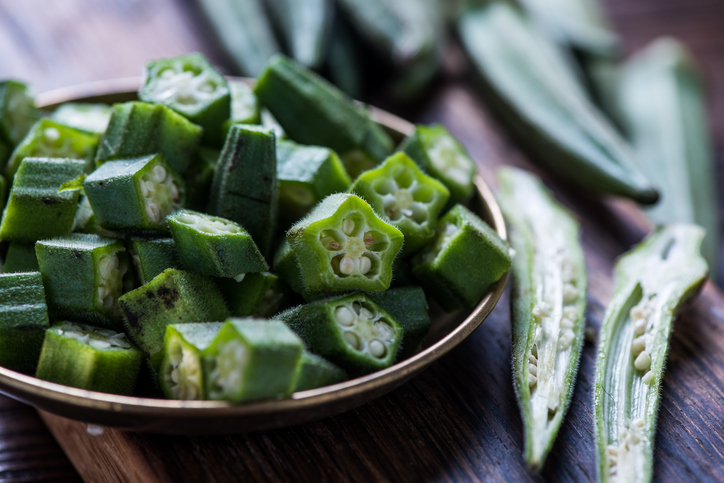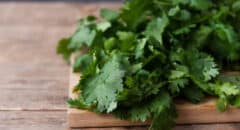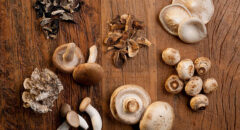
We may all know okra as a slimly vegetable that usually goes in gumbo, as a side dish to fried chicken every now and then, or used in many different cultures for salads, soups and stews, fresh or dried, and fried or boiled.
But is rarely seen as medicine. But it is!
Okra is also known as bamia or bhindi is a plant of the tropical and warm climates that produces edible green pods. As a vegetable, okra has been .
Okra (Abelmoschus esculentus) has an abundance of health benefits, such as:
Blood Sugar
- It can help stabilize blood sugar levels by slowing its absorption from the intestines – see below for more details on okra consumption and diabetes. There are other 12 foods that control type 2 diabetes.
Eyesight
- It’s rich in vitamin A and other antioxidants – the green pods contain beta-carotene, lutein and xanthine, which together with vitamin A help preserve good vision and keep your skin fresh and healthy. Okra has been connected to cataract prevention and is praised for preventing spots and pimples.
TAKE A LOOK: An Okra Recipe That You'd Love!
Birth Defects/Pregnancy
- It contains a large amount of folates – Just 100 grams of okra provides nearly one-fourth of the recommended daily amount! Folates (folic acid) are particularly important in the pre-conception period and during early gestation and help prevent birth defects. Foods with folate are can also help to cleanse your lungs, which is an area many pregnant mothers complain of. You may want to beef up your okra intake during pregnancy.
Cancer
- Due to the abundance of antioxidants and fiber, some also connect okra with cancer prevention, especially the prevention of colorectal cancer.
Colds & Flu
- It’s a rich source of vitamin C, which helps with the body’s immunity – okra has been linked to cough and cold prevention. Since vitamin C also act as an anti-inflammatory, okra might be good for reducing the symptoms of asthma and can be used in addition to these 10 natural treatments for asthma.
Constipation
- It contains lots of dietary fiber and acts as a natural laxative which can help you to naturally get rid of constipation. The pods are rich in mucilage substance, which is a thick, gluey substance that lubricates the large intestine and helps with elimination. Okra’s fiber also feeds the gut’s beneficial bacteria (probiotics) and helps maintain the pH balance of your digestive tract.
Blood Clots
- It contains vitamin K, which is important for bone health and plays a major role in stopping blood clots.
Heart Health
The soluble fiber within okra helps naturally reduce cholesterol and, therefore, decreases the chance of cardiovascular disease, according to the Journal of Food Processing & Technology, making the consumption of okra is an efficient method to manage the body’s cholesterol levels. Okra additionally is loaded with pectin that can help reduce high blood cholesterol simply by modifying the creation of bile within the intestines.
Okra is also a good source of minerals, including iron, calcium, magnesium (find out if you are magnesium deficient) and manganese.
All of this and we haven't even talked about what it does to help prevent and fight diabetes.
As research has shown, roasted okra seeds, which have long been used in Turkey to treat diabetes, have also been studied and proven to have a positive effect on issues that cause type 2 diabetes.









